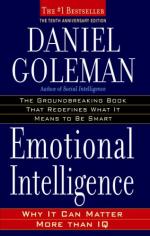
|
| Name: _________________________ | Period: ___________________ |
This test consists of 5 multiple choice questions, 5 short answer questions, and 10 short essay questions.
Multiple Choice Questions
1. Who found that husbands find disagreements more stressful and therefore have a lower threshold for flooding leading them to stonewall as a protective defense?
(a) William Stern.
(b) Ted Huston.
(c) Robert Levenson.
(d) Robert Rosenthal.
2. Jerome Kagan found four temperamental types that have different patterns of brain activity. What is the second described in Part Four: Chapter 14, “Temperament Is Not Destiny”?
(a) Upbeat.
(b) Bold.
(c) Melancholy.
(d) Timid.
3. Hilda Bruch pioneered the study of eating disorders that identified the two-part cause. What was the first part?
(a) Girls with eating disorders were enraged and under stimulated.
(b) Girls with eating disorders were compassionate and uncoordinated.
(c) Girls with eating disorders felt ashamed and were unable to feel compassion.
(d) Girls with eating disorders could not distinguish one feeling from another.
4. Psychologist Bruce McEven showed in studies that what weaken the immune system, increasing vulnerability to diabetes, ulcers, and the spread of cancer?
(a) Fear and loathing.
(b) Happiness and love.
(c) Anger and fear.
(d) Stress and anxiety.
5. Where is neuroscientist Torsten Wiesel from?
(a) Greenland.
(b) Finland.
(c) Sweden.
(d) Poland
Short Answer Questions
1. In the doctor patient relationship, the doctor is trained to treat disease and injury but not what, according to the author in Part Three: Chapter 11, “Mind and Medicine”?
2. Dr. David Spiegel is one of the most respected experts in the clinical uses of what?
3. Following criticism from Senator Charles Grassley of the Senate Finance Committee, Nemeroff resigned as chair of the psychiatry department at what institution?
4. According to Dr. Charles Nemeroff, the sufferers of PTSD experience a numbing of pain thanks to a higher secretion of what?
5. As businesses rely more and more on teamwork in a global environment, the more prized employees will be the ones who demonstrate what?
Short Essay Questions
1. How does family impact a child’s development of emotional intelligence?
2. What program of John Lochman’s is decribed in Part Five: Chapter 15, “The Cost of Emotional Illiteracy”? What were the results of the program?
3. What does the author state regarding “age-appropriate learning” in Part Five: Chapter 16, “Schooling the Emotions”?
4. How does the author describe the “healthy” and “unhealthy” ways of arguing in Part Three: “Chapter 9, Intimate Enemies”?
5. What is the author’s position in teaching “character”? What is his conclusion in this regard at the end of the book?
6. What does the author state in regard to personal prejudice in the workplace in Part Three: Chapter 10, “Managing with Heart”?
7. What impacts do stress and anxiety have on the body, according to Bruce McEven?
8. Harvard pediatrician T. Berry Brazelton found through research that a child's readiness for learning is based on seven key factors. What are they?
9. What study on the engineers at Bell Labs is described in Part Three: Chapter 10, “Managing with Heart”? What results were found?
10. What growing movement in education is described by the author in Part Five: Chapter 16, “Schooling the Emotions”?
|
This section contains 918 words (approx. 4 pages at 300 words per page) |

|




